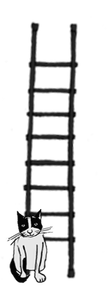

The Blitz: On Feeling Overwhelmed, Seeking and Finding Safety
by Jennifer Paros
“When jarred, unavoidably, by circumstance, revert at once to yourself and don’t lose the rhythm more than you can help.
You’ll have a better grasp of harmony if you keep going back to it.”
— Marcus Aurelius
At 85, my father went through a brief period in which he was in and out of hospitals. There was a lot of communication between family members regarding what did – or didn’t – need to be done. I found myself mentally on call, though most of the time I was unneeded. The business of waiting for news that I would have to do something put me into a state of hyper alertness more stressful than any event that occurred during that time. I was in mental overdrive. My focus was fixated on a future over which I had no control and on living up to responsibilities I could not yet define. I was overwhelmed – not from what was happening, but by the idea of what might happen.
During World War II, the Nazis developed the Blitzkrieg – in which columns of tanks rushed into Poland, the Netherlands, Belgium, and France. As Ryan Holiday says in his book, The Obstacle Is the Way, the Blitzkrieg was constructed to capitalize on the enemy flinching when faced with what seemed to be an “overwhelming force.” The enemy had to fall apart, otherwise the Blitzkrieg strategy wouldn’t work. It was Dwight D. Eisenhower who demanded his generals no longer see the situation as a disaster. He envisioned taking advantage of the onslaught of Germans, rather than recoiling. They would bend, not break, in the face of the upset. Holiday says the Allies were “. . . able to see the opportunity inside the obstacle rather than simply the obstacle that threatened them.” This new perception helped change the course of the battles to follow. Click on the lamp to read more.
by Jennifer Paros
“When jarred, unavoidably, by circumstance, revert at once to yourself and don’t lose the rhythm more than you can help.
You’ll have a better grasp of harmony if you keep going back to it.”
— Marcus Aurelius
At 85, my father went through a brief period in which he was in and out of hospitals. There was a lot of communication between family members regarding what did – or didn’t – need to be done. I found myself mentally on call, though most of the time I was unneeded. The business of waiting for news that I would have to do something put me into a state of hyper alertness more stressful than any event that occurred during that time. I was in mental overdrive. My focus was fixated on a future over which I had no control and on living up to responsibilities I could not yet define. I was overwhelmed – not from what was happening, but by the idea of what might happen.
During World War II, the Nazis developed the Blitzkrieg – in which columns of tanks rushed into Poland, the Netherlands, Belgium, and France. As Ryan Holiday says in his book, The Obstacle Is the Way, the Blitzkrieg was constructed to capitalize on the enemy flinching when faced with what seemed to be an “overwhelming force.” The enemy had to fall apart, otherwise the Blitzkrieg strategy wouldn’t work. It was Dwight D. Eisenhower who demanded his generals no longer see the situation as a disaster. He envisioned taking advantage of the onslaught of Germans, rather than recoiling. They would bend, not break, in the face of the upset. Holiday says the Allies were “. . . able to see the opportunity inside the obstacle rather than simply the obstacle that threatened them.” This new perception helped change the course of the battles to follow. Click on the lamp to read more.

I Started It: The Power of Taking Responsibility
by Jennifer Paros
“Every time you are tempted to react in the same old way, ask if you want to be a prisoner of the past or a pioneer of the future.”
— Deepak Chopra
Sometimes I watch a program called, Dr. Pimple Popper. For the uninitiated: this is a show about a dermatologist who attempts to resolve extreme skin conditions, including the removal of some dramatic, severe lumps and bumps. At first, based on both title and concept, I didn’t understand why anyone would ever want to watch it. I don’t recall what led me to sit through my first episode, but I am now up-to-date and have seen them all. I have discovered why I like to watch it. Most of the patients come in believing they are trapped and diminished by something beyond their control, and leave feeling freed of that sense of limitation. This kind of transformation makes for a satisfying story - though every happy ending marks a new beginning and not everyone is prepared to tend to that themselves.
A recent episode included a woman with lesions and scars, but her previous medical tests showed thickened skin from chronic scratching and rubbing, which meant the damage to her skin was self-created (factitial). There was no skin disease or underlying condition. But the woman didn’t believe she was creating the problem. The doctor told her she had the power to change the pattern. The patient seemed open to the idea at first, but then said, “It just puts the burden back on me.” Click the cat and ladder to read more.
by Jennifer Paros
“Every time you are tempted to react in the same old way, ask if you want to be a prisoner of the past or a pioneer of the future.”
— Deepak Chopra
Sometimes I watch a program called, Dr. Pimple Popper. For the uninitiated: this is a show about a dermatologist who attempts to resolve extreme skin conditions, including the removal of some dramatic, severe lumps and bumps. At first, based on both title and concept, I didn’t understand why anyone would ever want to watch it. I don’t recall what led me to sit through my first episode, but I am now up-to-date and have seen them all. I have discovered why I like to watch it. Most of the patients come in believing they are trapped and diminished by something beyond their control, and leave feeling freed of that sense of limitation. This kind of transformation makes for a satisfying story - though every happy ending marks a new beginning and not everyone is prepared to tend to that themselves.
A recent episode included a woman with lesions and scars, but her previous medical tests showed thickened skin from chronic scratching and rubbing, which meant the damage to her skin was self-created (factitial). There was no skin disease or underlying condition. But the woman didn’t believe she was creating the problem. The doctor told her she had the power to change the pattern. The patient seemed open to the idea at first, but then said, “It just puts the burden back on me.” Click the cat and ladder to read more.

The Life Behind Things: Seeing More and Living Unexcused
by Jennifer Paros
“The Fates guide the person who accepts them and hinder the person who resists them.”
— Cleanthes
Over six months ago, I was summoned for jury duty. As we all know, it’s a very good and noble thing to do one’s civic duty; however, I did not want to go. The other times I’ve been summoned, I was excused. So, with my dad having just died, and one or two other factors at play, I submitted my explanation and hoped to be excused again. This time, though, I was not. My summons was just delayed. During this period I was busy with executor duties, but still able to routinely find the time to dread going to jury duty.
I am a person who is often inclined to stay home. As a child, I remember looking at our pear-shaped, gray tabby, Muffy, wishing for her situation – the permanently excused life of a cat. Though she occasionally ventured out to the front steps of our house to observe life, once done, she could quickly return to the mother ship, something I often wished for at that time. Click the umbrella to read more.

Happy Surprises: Learning to Cooperate With the Unknown
by Jennifer Paros
"Mystery is at the heart of creativity. That, and surprise."
— Julia Cameron
I cannot remember which birthday it was; I think I was turning thirteen. Unbeknownst to me, my Mom was attempting to orchestrate a small surprise on my behalf. I remember my friend Wendy asking me to go somewhere in a manner that seemed out of the norm. My antennae went up; it felt as though I was being covertly steered. Things were happening, behind the scenes, over which I had no control. I became uncomfortable and resistant. The thing is – I liked birthdays and I trusted my friends and family. It was a knee-jerk reaction: I wanted to know what was going on. In the end, due to my lack of cooperation and hyper-awareness, I effectively ruined my own surprise.
On the other hand, as a child, I once hid a dollar in hopes I’d forget where it was and happily discover it later. When I eventually did find the dollar, even though I’d forgotten about it, the experience was lackluster. Having engineered my own surprise, I just knew too much. It’s those incalculable factors – in life and in story telling – that make things so interesting and joyful. I had wanted the delight a surprise can bring but without any of the unknowns and uncertainties. As the years have gone by, I still can’t consider myself an embracer of surprise. But recently, I encountered a surprise that made me think about them differently.
Click the slinky to read more.
by Jennifer Paros
"Mystery is at the heart of creativity. That, and surprise."
— Julia Cameron
I cannot remember which birthday it was; I think I was turning thirteen. Unbeknownst to me, my Mom was attempting to orchestrate a small surprise on my behalf. I remember my friend Wendy asking me to go somewhere in a manner that seemed out of the norm. My antennae went up; it felt as though I was being covertly steered. Things were happening, behind the scenes, over which I had no control. I became uncomfortable and resistant. The thing is – I liked birthdays and I trusted my friends and family. It was a knee-jerk reaction: I wanted to know what was going on. In the end, due to my lack of cooperation and hyper-awareness, I effectively ruined my own surprise.
On the other hand, as a child, I once hid a dollar in hopes I’d forget where it was and happily discover it later. When I eventually did find the dollar, even though I’d forgotten about it, the experience was lackluster. Having engineered my own surprise, I just knew too much. It’s those incalculable factors – in life and in story telling – that make things so interesting and joyful. I had wanted the delight a surprise can bring but without any of the unknowns and uncertainties. As the years have gone by, I still can’t consider myself an embracer of surprise. But recently, I encountered a surprise that made me think about them differently.
Click the slinky to read more.



